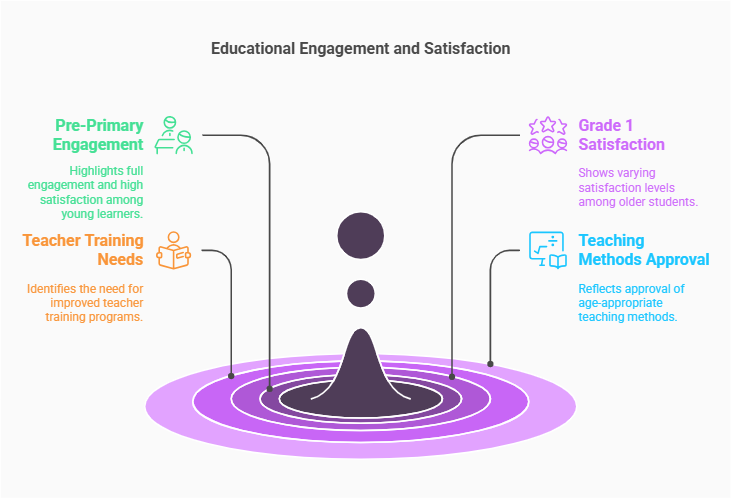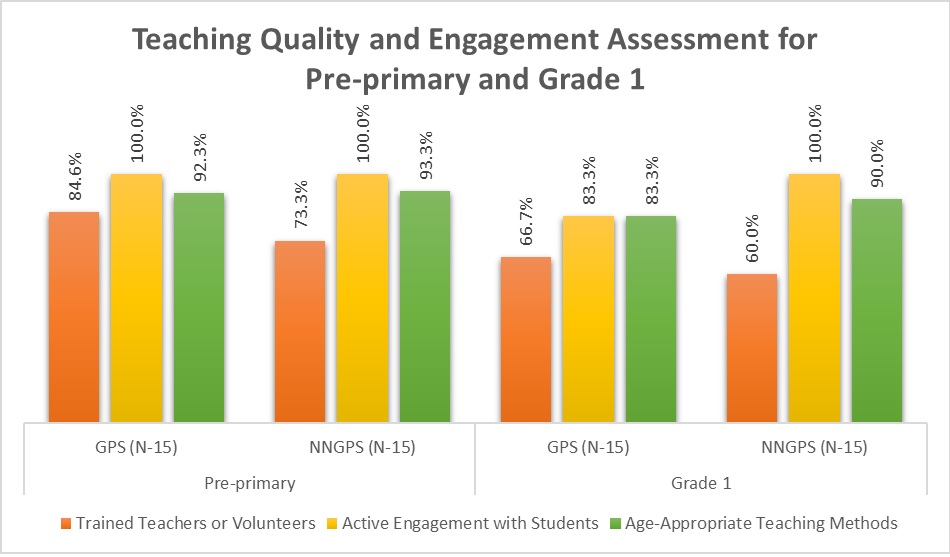
At ART Lab, we are dedicated to uncovering insights that shape the future of education. Our recent research focuses on the quality of teaching and student engagement in pre-primary and Grade 1 classrooms across GPS and NNGPS schools. The findings highlight both areas of success and opportunities for improvement, providing a roadmap for enhancing the learning experience for young students.
Exceptional Student Engagement in Pre-Primary Classrooms

One of the standout results from the study is the level of active student engagement in pre-primary classrooms. Both GPS and NNGPS schools report 100% engagement among students, demonstrating the success of interactive and participatory teaching practices. This indicates that at the earliest stages of education, teachers are fostering an environment where students feel involved and engaged in their learning journey.
The Importance of Teacher Training for Grade 1
While pre-primary classrooms are thriving in terms of engagement and teacher readiness, the transition to Grade 1 reveals a noticeable gap. The percentage of trained teachers or volunteers drops significantly at this level, particularly in NNGPS schools, where only 60% of teachers are trained. In comparison, GPS schools fare slightly better, but at 66.7%, there is still room for improvement. These findings highlight the urgent need for enhanced teacher training programs to ensure consistency in quality across all educational stages.
Satisfaction with Age-Appropriate Teaching Methods
Pre-primary classrooms also score high in terms of satisfaction with age-appropriate teaching methods. GPS and NNGPS schools report satisfaction rates of 92.3% and 93.3%, respectively. However, as students progress to Grade 1, satisfaction declines slightly, with GPS schools reporting 83.3%. While still positive, these figures indicate the need for ongoing adaptation and assessment of teaching methods to maintain high levels of satisfaction as students grow older.
Implications for Early Education
These findings underscore the critical importance of investing in teacher training and development. Equipping educators with the tools, knowledge, and resources to effectively teach at all stages can help bridge the gaps identified in the study. Additionally, regular assessment and adaptation of teaching strategies are essential to address the evolving needs of young learners.
By focusing on these areas, we can ensure that all students receive a consistent, high-quality educational experience. This not only benefits individual learners but also strengthens the foundation of our education system as a whole.
Join the Conversation
At ART Lab, we believe that collaboration and dialogue are key to driving meaningful change in education. What steps do you think are most important to improve teaching quality and engagement in early education? We welcome your thoughts and ideas as we work together to create a brighter future for the next generation.